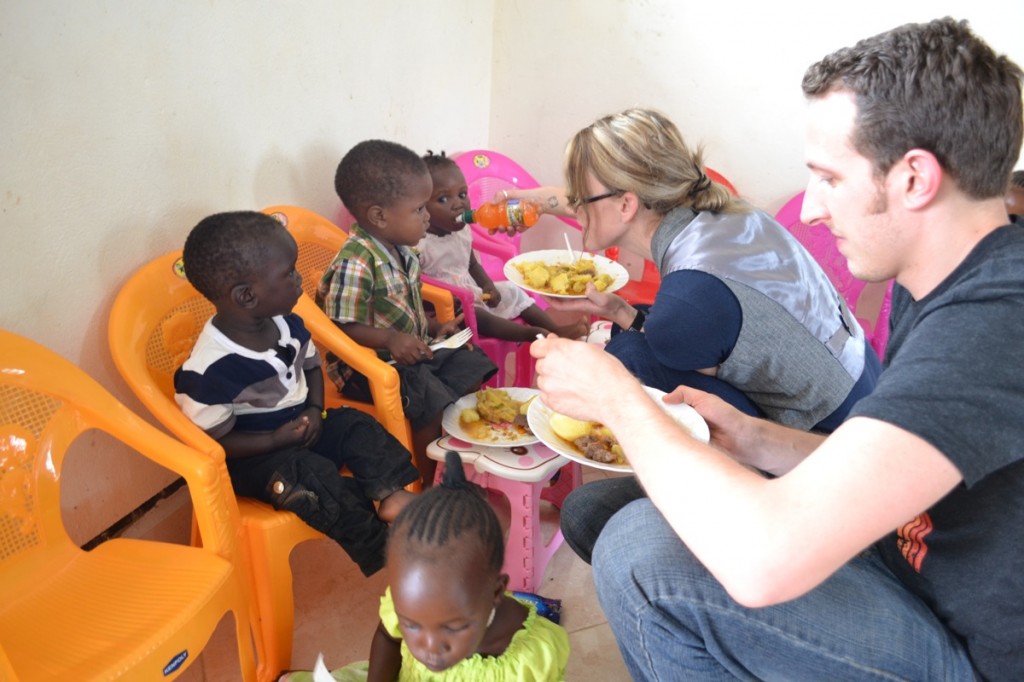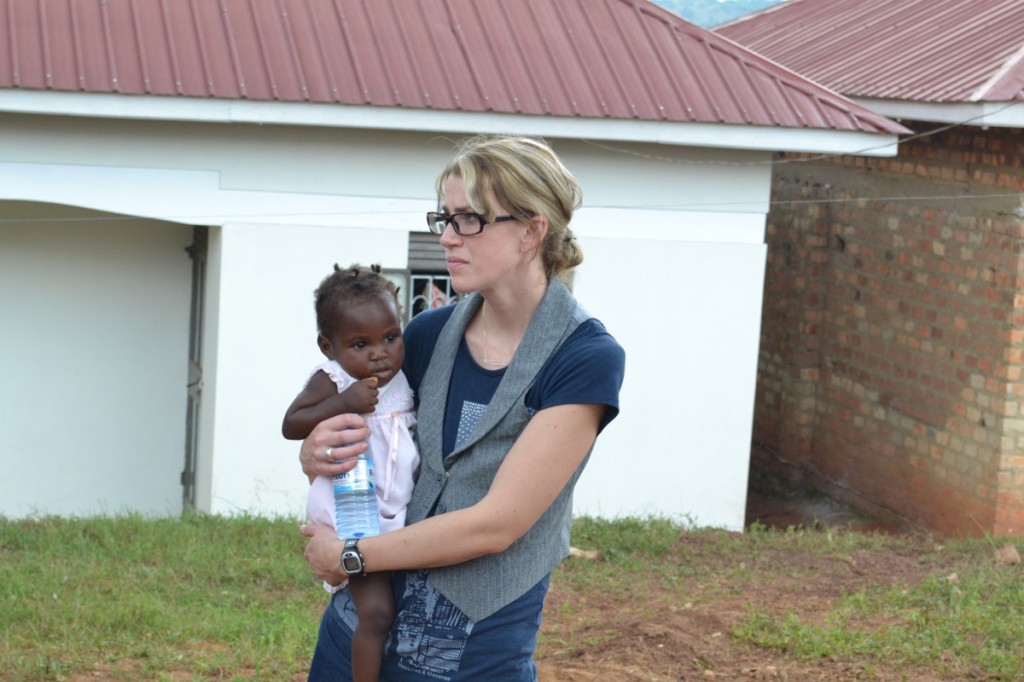[wh_blogger img=”http://worldhelp.net/wp-content/uploads/2013/11/emily.png” name=”Emily Wierenga” twitter=”emily_wierenga” short_bio=”Author of Save My Children, Chasing Silhouettes, and Mom in the Mirror“]
Emily Wierenga is wife to a math-teacher husband; mother and foster mother to four boys; an artist, columnist and the author of Chasing Silhouettes: How to help a Loved One Battling an Eating Disorder and Mom in the Mirror: Body Image, Beauty and Life After Pregnancy.
[/wh_blogger]


I am feeding her plantain, mushed up with boiled potatoes and rice with a cream sauce. Grilled chicken in a paper bag and french fries for the foreigners, and we are at Destiny Villages of Hope—and this little girl, rescued from the slums of Katwe, with no family.
She had no aunties or uncles to buy her presents on her birthday, no Daddy to swing her high in the air, no Mommy to kiss her forehead and tuck her into bed at night. No one.
She’s one year old. She wears pampers and her brown eyes search mine silently as I spoon the plantain into her mouth, and she has slivers of wood through the lobes of her ears, tribal piercings—and I think about her mother, bearing her in the dirt of the slum, the smell of feces and fish outside their cloth door and the father–maybe he died of AIDS, maybe both of them did, and the grandmother starving to death, because life is not Facebooked here in Africa. It’s not Instagrammed into edited photos. It’s not a compilation of statuses, or cleverly worded tweets. No, life in the slums of Africa is about survival.
Around me are 20 others just like her—with skin the color of night and hair with colorful beads, sitting quiet and still in their plastic chairs eating plates of food, and they don’t complain once. When you face death so quick you learn not to complain about life.
I’m spooning plantain and potato and her small mouth moves, I give her some juice and her hair is done in colorful elastics. Her feet not touching the floor and it’s not fair.
This world we live in, this country with its 2.5 million orphans suffering for the sins of grown-ups—because of the sins of Joseph Kony and AIDS and it’s the children who pay.
Mama Evah comes to the door, smiles at us foreigners on the floor, bowing before the children, serving them lunch, takes a seat—she lost her sister last month. Her husband, two years ago. She lives in a large home with 25 orphaned children; she runs Destiny, which cares for 1,700 more, and oversees a church in the slums which ministers to 2,500 each Sunday.
And I look from her to the babies, with their plantain, and I don’t see victims: I see victory. Because Mama Evah, she’s an example of what Christ can do through a person—and all of these babies here, they have her potential. We can turn our sorrow into rejoicing, given the chance.
But the choice is ours.
Mama Evah could have chosen to stop serving these babies when her husband died, or when her sister passed away and left her eight children–she could have given up. Stopped caring, but you know what the first words out of her mouth are before she speaks? What the first words of any Christian Ugandan are, before they speak? “Praise God—He is good, all the time.”
You can only know how to praise God if you’ve grieved to the extent that you have no reason at all to believe—but somehow you still do. As my friend says, faith is the tangible substance of an intangible hope. Faith is rising each morning and serving breakfast to 25 orphans because you refuse to let war get the best of you.
A child who was born in the slums now lives in a Village called Destiny.
Is there anything more hopeful?
Let’s give that chance to another child today, friends. Help Mama Evah build two more rescue homes by donating HERE… and if you need further convincing? Watch this video:
Watch World Help Bloggers in Africa | Emily Wierenga from World Help on Vimeo.



